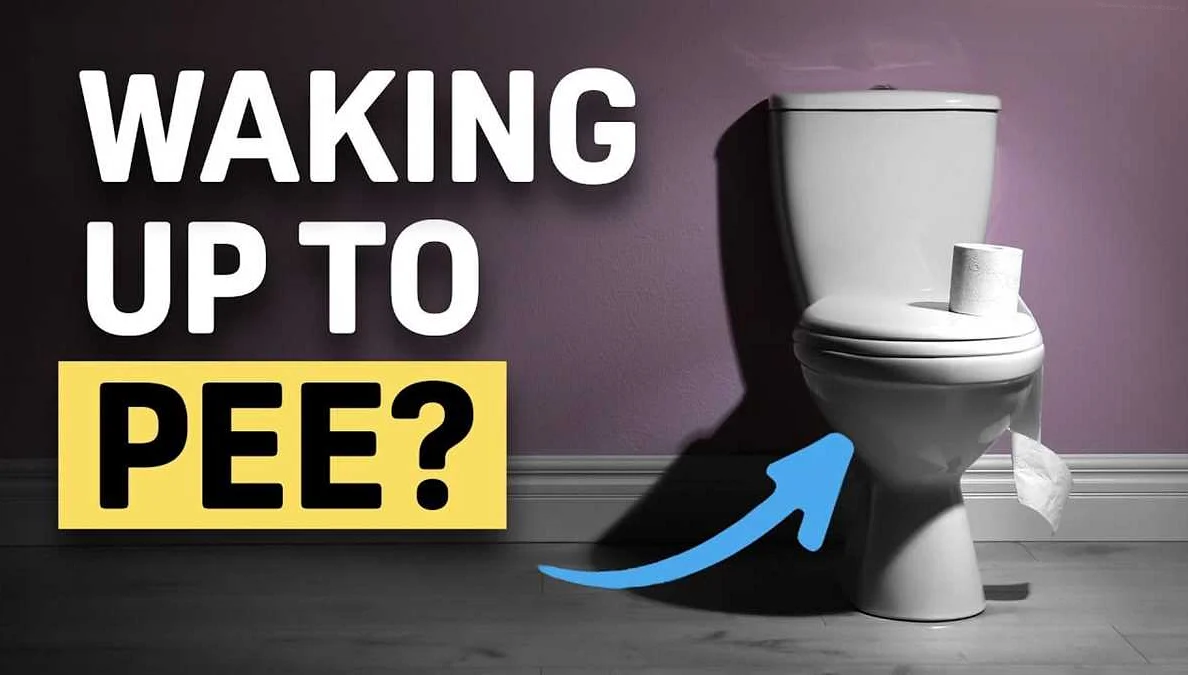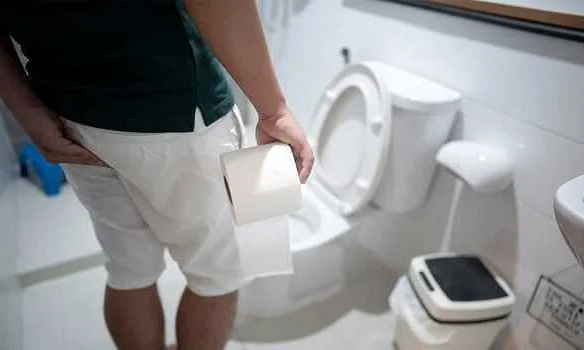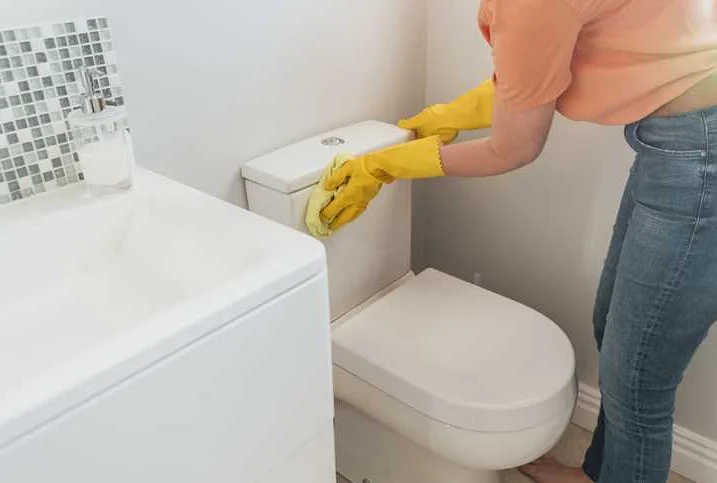7 Diagnoses That Can Be Made If You Run to the Toilet Too Often
Содержимое
Discover seven potential diagnoses that could explain why you frequently need to visit the bathroom. Learn about the common conditions that may cause excessive urination and find out when you should consult a doctor for a proper diagnosis and treatment.
Having to make frequent trips to the toilet can be both inconvenient and concerning. While occasional bathroom breaks are normal, experiencing excessive trips to the toilet might indicate an underlying health issue. In this article, we will explore seven common diagnoses that could explain why you find yourself running to the restroom so often.
1. Urinary Tract Infection (UTI)
If you are experiencing a burning sensation while urinating or have cloudy, foul-smelling urine, you may have a urinary tract infection. UTIs are caused by bacteria entering the urethra and can result in frequent urination. It is important to seek medical attention for proper diagnosis and treatment.
2. Diabetes
Frequent urination can be a symptom of diabetes. When blood sugar levels are high, the body tries to eliminate the excess glucose through urine, leading to increased trips to the toilet. If you have been experiencing excessive thirst, unexplained weight loss, and fatigue, it is essential to get tested for diabetes.
3. Overactive Bladder
An overactive bladder is a condition characterized by a sudden and frequent need to urinate. It can be caused by various factors such as muscle weakness, nerve damage, or bladder irritation. Individuals with an overactive bladder often feel an urgent need to urinate, even when the bladder is not full.
4. Interstitial Cystitis
Interstitial cystitis, also known as painful bladder syndrome, is a chronic condition that causes frequent urination and pelvic pain. This condition affects the bladder lining, leading to urinary urgency and discomfort. If you experience pain in the pelvic region along with frequent trips to the toilet, you might be suffering from interstitial cystitis.
5. Kidney Stones
Kidney stones can cause intense pain and result in frequent urination. These hard deposits form in the kidneys and can obstruct the urinary tract, causing discomfort and a frequent urge to urinate. If you experience severe abdominal or back pain along with frequent trips to the toilet, kidney stones may be the culprit.
6. Prostate Problems
In men, frequent trips to the toilet might be an indication of prostate problems. An enlarged prostate can press against the urethra, interfering with normal urine flow. This can lead to increased frequency of urination and difficulty emptying the bladder completely.
7. Anxiety and Stress
Anxiety and stress can have a significant impact on our bodies, including our need to urinate. When we are stressed or anxious, our body releases stress hormones that can stimulate the bladder and result in increased trips to the toilet. If you find yourself making frequent bathroom visits during times of high stress, it may be worth exploring relaxation techniques or speaking with a healthcare professional.
Remember, if you are experiencing frequent trips to the toilet, it is important to consult with a healthcare provider for an accurate diagnosis and appropriate treatment. While these seven diagnoses are common culprits, there may be other underlying causes that require medical attention.
Causes of Frequent Trips to the Toilet

Frequent trips to the toilet can be caused by a variety of factors. Some common causes include:
1. Urinary Tract Infection (UTI): UTIs are a common cause of frequent urination. They occur when bacteria enter the urinary tract and cause an infection. Symptoms may include a strong urge to urinate, a burning sensation during urination, and cloudy or bloody urine.
2. Diabetes: Uncontrolled diabetes can lead to increased urine production. When blood sugar levels are high, the kidneys try to remove the excess sugar by producing more urine. This can result in frequent trips to the toilet.
3. Overactive Bladder: Overactive bladder is a condition in which the bladder muscles contract involuntarily, causing a sudden and strong urge to urinate. This can result in frequent trips to the toilet, even when the bladder is not full.
4. Prostate Problems: In men, an enlarged prostate or prostate infection can cause frequent urination. These conditions can put pressure on the bladder and cause it to empty more frequently.
5. Bladder Stones: Bladder stones are hard deposits that can form in the bladder. They can irritate the bladder lining and cause frequent urination. Other symptoms may include pain or discomfort in the lower abdomen and blood in the urine.
6. Interstitial Cystitis: Interstitial cystitis is a chronic condition that causes bladder pain and a frequent need to urinate. The exact cause is unknown, but it may be related to inflammation of the bladder lining. Other symptoms may include pelvic pain and discomfort.
7. Medications: Certain medications, such as diuretics or those used to treat high blood pressure, can increase urine production and lead to frequent trips to the toilet.
If you are experiencing frequent trips to the toilet, it is important to consult a healthcare professional for a proper diagnosis and treatment plan. They can help determine the underlying cause and recommend appropriate interventions to alleviate your symptoms.
Urinary Tract Infections

Urinary tract infections, or UTIs, are one of the most common reasons for frequent trips to the toilet. A urinary tract infection occurs when bacteria enters the urinary system and multiplies in the bladder. This can cause a range of symptoms, including frequent urination, a strong urge to urinate, a burning sensation while urinating, cloudy or strong-smelling urine, and pelvic pain.
UTIs are more common in women than men, and they can occur at any age. They are often caused by bacteria entering the urethra and traveling up into the bladder. Sexual activity, pregnancy, menopause, and certain medical conditions can increase the risk of developing a urinary tract infection.
Treatment for a UTI typically involves antibiotics to kill the bacteria causing the infection. Drinking plenty of water and urinating frequently can also help flush out bacteria from the urinary system. In some cases, further testing may be needed to determine the underlying cause of recurrent UTIs.
Preventing urinary tract infections can be done by practicing good hygiene, including wiping from front to back after using the toilet, urinating before and after sexual activity, and staying hydrated. Avoiding irritants, such as harsh soaps or bubble baths, and wearing breathable cotton underwear can also help prevent UTIs.
If you are experiencing frequent trips to the toilet and suspect a urinary tract infection, it is important to see a healthcare provider for diagnosis and treatment. Prompt treatment can help prevent complications and relieve symptoms associated with UTIs.
Diabetes Mellitus
Diabetes Mellitus is a chronic condition characterized by high blood sugar levels, resulting from either the body’s inability to produce enough insulin or the body’s inability to use insulin effectively. It is one of the most common causes of frequent trips to the toilet, as excess glucose in the blood is excreted through urine.
People with diabetes may experience increased thirst and urination, as the body tries to eliminate excess sugar. This can lead to more frequent trips to the toilet, both during the day and at night.
In addition to frequent urination, other symptoms of diabetes mellitus may include unexplained weight loss, fatigue, blurred vision, slow healing of wounds, and frequent infections.
There are different types of diabetes mellitus, including type 1 diabetes, type 2 diabetes, and gestational diabetes. Type 1 diabetes is an autoimmune condition in which the body’s immune system mistakenly attacks and destroys the insulin-producing cells in the pancreas. Type 2 diabetes is more common and usually develops later in life, often as a result of poor diet and lifestyle choices. Gestational diabetes occurs during pregnancy and usually resolves after giving birth.
Diabetes mellitus requires careful management to keep blood sugar levels in control. Treatment may include lifestyle changes, such as a healthy diet and regular exercise, as well as medication or insulin therapy. It is important for individuals with diabetes to monitor their blood sugar levels regularly and work closely with healthcare professionals to prevent complications and manage their condition effectively.
Overactive Bladder

An overactive bladder is a medical condition that causes a frequent and sudden urge to urinate. People with an overactive bladder may need to use the bathroom more than eight times a day and may also experience nighttime urination, called nocturia.
Common symptoms of an overactive bladder include:
- Frequent urination, usually more than eight times a day
- Sudden urge to urinate
- Waking up at night to urinate
- Urinary incontinence (involuntary leakage of urine)
There are several potential causes for an overactive bladder. Some common causes include:
| Bladder muscle problems | Weak or overactive bladder muscles can cause frequent and urgent urination. |
| Nerve problems | Damage or dysfunction of the nerves that control the bladder can lead to an overactive bladder. |
| Urinary tract infections | An infection in the urinary tract can cause temporary overactivity of the bladder. |
| Bladder stones | Stones in the bladder can irritate the bladder lining, leading to an overactive bladder. |
Diagnosing an overactive bladder involves a medical evaluation, including a physical exam, a review of symptoms, and possibly diagnostic tests such as urine analysis or urodynamic testing. Treatment options for an overactive bladder include lifestyle changes, medication, and in some cases, surgical procedures.
If you are experiencing symptoms of an overactive bladder, it is important to consult with a healthcare professional for an accurate diagnosis and appropriate treatment plan.